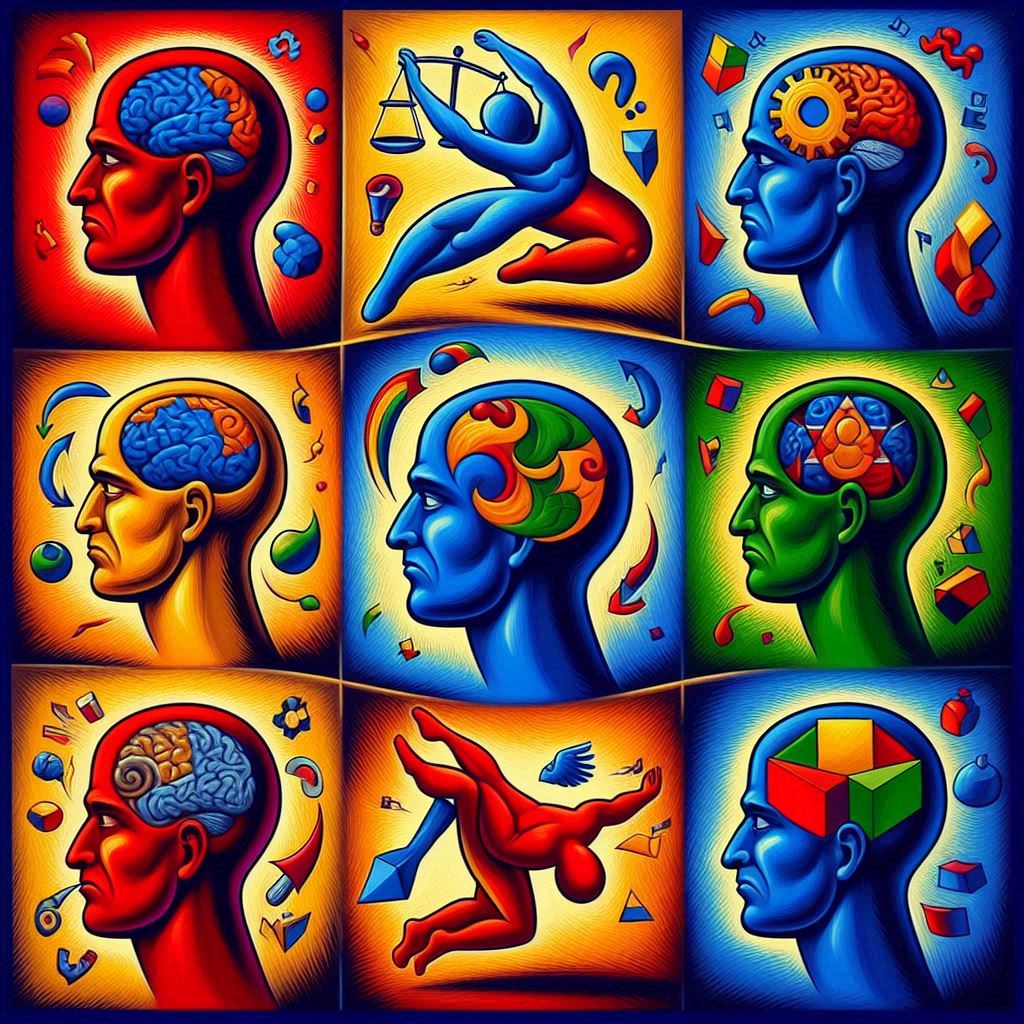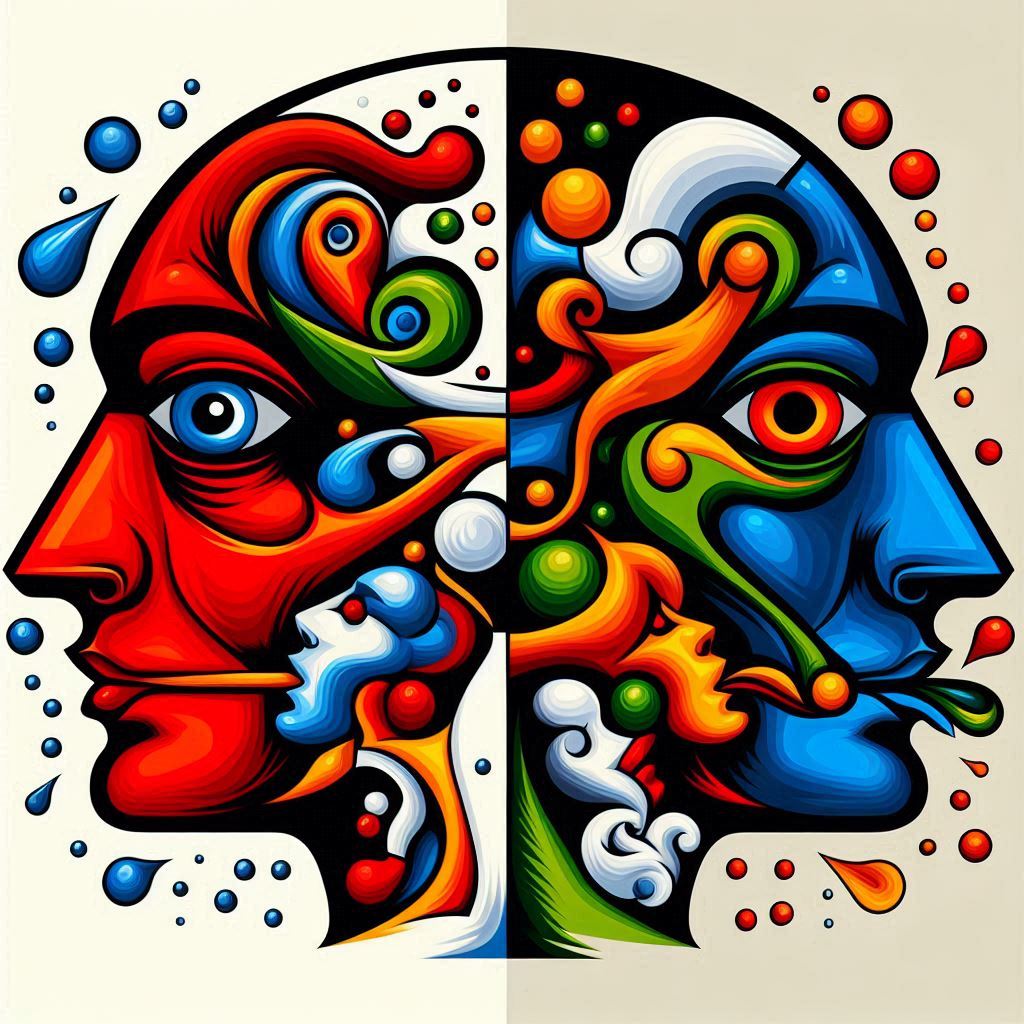What’s the Diff? Rational vs Reasonable
Have you ever wondered about the difference between being rational and being reasonable? While these two terms may seem similar, they actually have distinct meanings. Understanding the nuances between rational and reasonable thinking can help us make better decisions and communicate more effectively with others.
In this article, we’ll explore the differences between these two concepts and how they impact our daily lives. Let’s dive into the world of rational vs reasonable thinking and see what sets them apart.
Dissecting Rationality: Definition and Domain
Rationality and reasonableness are important in debates and decision-making. Rationality focuses on logic and facts, while reasonableness includes open-mindedness and flexibility, acknowledging the complexities of reality. These qualities can influence the tone of the conversation – rationality may seem assertive, while reasonableness promotes a more considerate dialogue.
The tripartite model of rationality consists of instrumental, theoretical, and value rationality. Instrumental rationality guides decision-making for efficiency, theoretical rationality seeks knowledge and truth, and value rationality considers actions in line with values and beliefs.
Empathy is essential in rationality, offering emotional connection that impacts decision-making. Considering empathy in rational thought can help overcome dichotomous thinking and promote holistic decision-making.
Criteria for Rational Thought and Action

Determining rational thought and action involves being open to the complexity of reality and making flexible choices. Rationality is a procedural activity, not just an individual quality. It’s crucial to maintain a fluid way of thinking. Personal values are significant in defining rationality. People often make decisions based on their core beliefs and ethical principles. Rationality intersects with empathy and reasonableness in decision-making.
It is important to consider the perspectives of others and weigh different options before making a choice. Overcoming the fear of losing control of life’s messiness is essential for rational thought and action. Flexibility, open-mindedness and the willingness to consider multiple viewpoints are key components of rationality. They can lead to more reasonable decision-making.
Unpacking Reasonableness: More than Just Logic

Reasonableness means more than just following logic. It also involves considering different views, understanding the complexities of human relationships, and making flexible decisions based on the situation. In negotiations and relationships, being reasonable helps people empathize with others and find solutions that work for everyone.
On the other hand, rationality often focuses on strict adherence to logical rules, which can hinder productive discussions and isolate those with different opinions. Reasonableness, however, encourages recognizing nuance and finding common ground. This approach can lead to open, constructive conversations and more inclusive decision-making. Understanding the difference between rationality and reasonableness is important for effective communication and conflict resolution.
Rational vs. Reasonable: Key Distinctions in Debate

Rationality and reasonableness are critical in debates and negotiations. Rationality is logical and fact-based thinking, while reasonableness involves open-mindedness and flexible choices.
In debates, being rational can lead to assertiveness and an all-or-nothing mindset. On the other hand, reasonableness encourages considering complex realities and being willing to compromise.
In negotiations, rational thought relies on objective criteria and evidence, while reasonableness focuses on finding common ground and making concessions.
The emphasis on strict rationality can hinder the ability to reach compromises in reasonable discourse. This can lead to dichotomous thinking and an unwillingness to consider alternative perspectives, ultimately impeding the negotiation process.
Being reasonable and open-minded is important in finding sustainable solutions through constructive debate and negotiation.
The ‘Cage of Rationality’: When Logic Overpowers Empathy

Tripartite Model of Rationality
The Tripartite Model of Rationality, developed by philosopher William James, has three components: instrumental rationality, theoretical rationality, and value rationality.
Instrumental rationality involves making decisions to achieve specific goals. Theoretical rationality involves forming beliefs based on reason and evidence. Value rationality involves aligning one’s values and behavior.
For example, when someone decides to buy a car, they use instrumental rationality to choose the best one for their needs while avoiding unnecessary costs. This is different from theoretical rationality, which guides their belief in the car’s reliability based on evidence.
In relationships, the Tripartite Model of Rationality can help individuals understand how they make decisions and form beliefs. For instance, instrumental rationality might mean focusing on actions that benefit themselves or others, while theoretical rationality could help form accurate beliefs about those they care for. Value rationality can help align actions with ethical principles, promoting healthier and more rational relationships.
Instrumental Rationality: Choosing Efficient Means to Ends
Instrumental rationality is all about choosing efficient means to achieve desired outcomes. This means carefully considering and selecting the most effective methods to get things done. For instance, when dealing with a complex problem, someone might do a cost-benefit analysis to figure out the best way forward. In theoretical rationality, instrumental rationality is essential for aligning beliefs with evidence.
It encourages individuals to examine and adjust their perspectives regarding new information and data. However, being too rational in interpersonal relationships could lead to assertiveness and black-and-white thinking, which might mess up communication and understanding. To deal with this, people can focus on being reasonable rather than strictly rational. This means being flexible and open to complexity, which can lead to healthier and more empathetic interactions with others.
Theoretical Rationality: Aligning Beliefs with Evidence
We use criteria such as coherence, consistency, and empirical support to determine whether beliefs match evidence in theoretical rationality.
Considering individual values and goals is key in value rationality for this alignment.
Yet, the ‘Cage of Rationality’ can restrict thinking and lead to rigid, one-sided views, making it hard to consider a wider range of evidence and perspectives.
Flexibility and open-mindedness are crucial to overcoming these limitations, gaining a more comprehensive understanding, and aligning beliefs with evidence.
Value Rationality: Consistency with Personal Values
In decision-making, it’s important to align actions with personal values. This involves reflecting on the outcomes, understanding the implications, and matching them with core beliefs. Balancing efficiency and personal morals means finding a middle ground. This may involve compromise, prioritization, or creative solutions. In relationships, staying true to personal values means showing empathy, listening actively, and considering others’ perspectives.
Prioritizing respectful communication, compromise, and mutual understanding helps navigate relationship complexities while honoring personal values.
The Art of Reasonableness in Negotiations

Reasonableness in negotiations is about more than just logic and evidence. It also involves understanding the complexity of reality and being flexible in decision-making. Both parties may have logical reasons for their positions when negotiating a business deal, but being reasonable means considering the other party’s perspective and finding a solution that benefits both. Empathy is essential in negotiations.
Understanding the other party’s emotions and motivations can build trust and lead to successful outcomes. In interpersonal relationships, strict rationality can hinder reasonable negotiations.
For example, the relationship can strain if one partner only focuses on logical solutions without considering the other’s emotions. Recognizing the importance of reasonableness in negotiations is crucial for achieving successful outcomes in personal and professional settings.
Rational Arguments: The Role of Evidence and Logic

The role of evidence in constructing rational arguments is important. It provides a foundation for sound reasoning and supports the argument’s validity.
Rational arguments become more persuasive when backed up by concrete evidence, making it easier to demonstrate the validity of one’s position.
Logic contributes to the strength of a rational argument. It enables individuals to form coherent and consistent lines of reasoning. By applying logical principles, individuals can avoid fallacies and contradictions, thereby strengthening their argument’s overall structure and validity.
A lack of empathy can lead to the “cage of rationality” overpowering interpersonal relationships. This happens by prioritizing rigid and inflexible logical reasoning over the emotional understanding of others.
Without empathy, individuals may become overly focused on proving their point logically. This disregards the emotional impact of their words and actions on others, ultimately undermining the quality of their relationships.
Reasonable Discourse: Finding Common Ground and Compromise

The art of reasonableness can be applied in negotiations by considering the perspectives of all parties involved.
By maintaining an open mind and being flexible, individuals can find common ground and ultimately reach a compromise.
Evidence and logic play crucial roles in rational arguments, contributing to the foundation of reasonable discourse.
By presenting factual information and using logical reasoning, individuals can work towards finding solutions that satisfy various viewpoints.
In interpersonal relationships, the constraints of rationality often arise due to emotional factors and personal biases.
To navigate these constraints and reach a compromise, individuals must actively listen, validate others’ feelings, and remain open to understanding different viewpoints.
This approach allows the negotiation process to be guided by reasonableness rather than solely rationality, fostering a more harmonious and accessible path to compromise.
Constraints of Rationality in Interpersonal Relationships
Rationality can affect interpersonal relationships. It can overshadow empathy and impact how people relate to each other. This might come off as assertive or even like bullying, making it hard to connect with others. On the other hand, being reasonable is important for negotiations and finding common ground. Flexibility and understanding the complexity of reality help keep relationships healthy.
Rationality can lead to binary thinking and a need for control, making it challenging to deal with the ups and downs of human interactions. Recognizing the procedural nature of rationality and being open to various forms of rational thinking can help overcome these constraints. As defined by William James, philosophical concepts like absolutist, structural, and calculative rationality can offer ways to navigate these constraints and promote healthier ways of approaching interpersonal relationships.

Vizologi is a revolutionary AI-generated business strategy tool that offers its users access to advanced features to create and refine start-up ideas quickly.
It generates limitless business ideas, gains insights on markets and competitors, and automates business plan creation.


